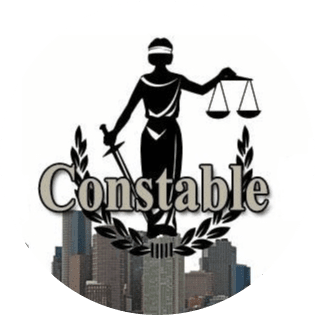Navigating Apostille and Authentication: Your Guide to Certificates and More

In today's globalized world, the validation and legalization of documents are crucial for various official and legal matters. Understanding the nuances of apostille and authentication processes is essential for individuals and organizations alike. Whether you need to authenticate a birth certificate, a power of attorney, or any other document, having a clear guide can streamline the often complex procedures involved.
An apostille is a certification that verifies the authenticity of a document for international use. On the other hand, authentication involves confirming the genuineness of a document's signature and seal. While both serve similar purposes, they differ in terms of the countries they are recognized in and the specific processes required.
Certain documents, such as birth certificates, marriage certificates, and court documents, may require apostilles or authentication to be legally recognized in another country. These procedures offer assurance to foreign authorities that the documents are valid and have undergone the necessary verification processes.
The process of obtaining an apostille typically involves submitting the original document, along with any required forms, to the relevant authority. Once verified, the apostille is attached to the document, certifying its authenticity and validity for international use.
Certificates and authentication are essential for legal documents to be accepted in official capacities. Without proper certification or authentication, documents may not be considered valid or legally binding, leading to potential complications in legal proceedings or transactions.
Various types of certificates, including birth certificates, death certificates, educational diplomas, and business licenses, can be apostilled or authenticated depending on the requirements of the receiving country. Meeting the specific criteria for each type of document is crucial to ensure smooth processing and acceptance.
When obtaining an apostille or authentication, individuals may need to adhere to specific requirements outlined by the issuing authority. These requirements can include providing notarized copies of the original document, completing application forms accurately, and paying any associated fees.
Notaries play a vital role in the apostille and authentication process by verifying the identity of signatories and certifying document signatures. Their involvement ensures that documents are legally binding and can be accepted in international jurisdictions that require notarization for validity.
The significance of notarization in obtaining an apostille lies in the added layer of verification and security it provides. By having a document notarized before obtaining an apostille, individuals can demonstrate the authenticity of the document and the signatures contained within it.
While notaries public can provide services for documents needing apostilles, it is essential to ensure that the notary is authorized to perform notarial acts in the relevant jurisdiction. Working with a qualified and experienced notary can streamline the process and minimize potential issues.
The Hague Convention of 1961 established standardized procedures for the legalization of documents through apostilles. Countries that are members of The Hague recognize apostilles as valid certifications, simplifying the validation process for documents exchanged between member states.
The Department of State in the U.S. plays a crucial role in the authentication of public documents for international use. By issuing authentication certificates, the Department of State verifies the signatures and seals of documents to ensure their legitimacy and validity in foreign jurisdictions.
Legalizing documents for international use involves a series of steps, including obtaining a notarized copy of the original document, submitting it to the relevant authority for authentication, and attaching an apostille or certificate of authentication. These processes are designed to facilitate cross-border transactions and legal proceedings.
Understanding the distinctions between an apostille and a certificate of authentication can help clarify the requirements for document validation. While both serve similar purposes, they may be recognized differently in various jurisdictions, highlighting the importance of selecting the appropriate certification.
Apostilled documents can typically be used outside of the U.S. in countries that are members of The Hague Convention. However, specific requirements may vary depending on the destination country, necessitating thorough research and compliance with relevant regulations.
Documents needing apostilles for international use must meet specific criteria outlined by the receiving country. These requirements may include providing certified copies of the original document, completing additional forms, and following prescribed procedures for obtaining an apostille.
Write a conclusion to this blog
1961 Hague Convention established the procedure for obtaining an apostille on documents issued in one country for use in another country. Many people need an apostille on their documents for various reasons. The process to get an apostille can be confusing, which is why there are so many frequently asked questions about how to request an apostille. Each country that is a party to the Apostille Convention has designated authorities, such as the California Secretary of State, to issue an apostille on vital records and other documents. It is important to understand the apostille requirements for the document will be used in order to ensure that the correct apostille services are obtained from the appropriate Secretary of State's office or State Department.
apostille for a document can vary depending on the type of documents issued and the state office or Embassy where the document will be used. It is important to follow the specific guidelines provided by the Secretary of State's office to ensure that the apostille is issued correctly. Failure to comply with the international law requirements for obtaining an apostille can result in delays or rejection of the documents to be used in another country. By understanding the process and requirements for obtaining an apostille, individuals can ensure that their documents are properly authenticated for use in countries party to the Apostille Convention.
Contact Us
Fill The Form Below To Get In Touch
Any questions you might have, we will gladly answer them.
* All Signors Must Have a Valid Form Of State or Federal Photo Bearing Identification.
Once an Appointment is Booked and agent is assigned or dispatched there are No Refunds
Colón Constable Services Reserves the right of refusal of service per case basis. *
